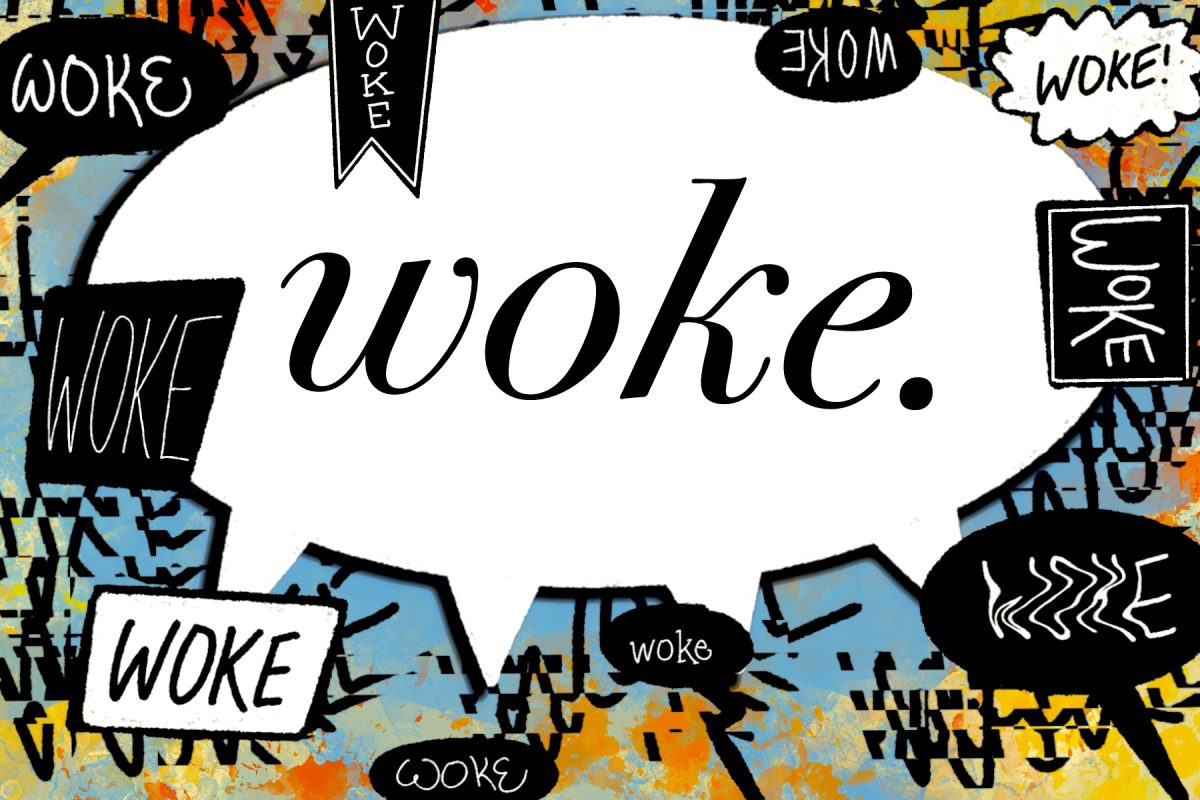The term “woke” has taken on a new convoluted meaning. “Wokeness” is often used to describe progressive initiatives, like affirmative action policies, the use of non-binary pronouns and critical race theory. A 2023 AllSides poll found that 56% of participants described “woke” as informed on social injustices, yet 39% of participants defined it as overly politically correct.
The “woke culture” dialogue has been taken out of context and appropriated for political means, reducing a historic and cultural movement to nonsensical outcry. It is necessary to take the time to deconstruct and examine the language we adopt.
In fact, our connotations surrounding the word “woke” have been distorted since its original usage. Musician Lead Belly first coined the term in 1938, referencing the wrongful execution of the Scottsboro Boys. Derived from African American Vernacular English, the word “woke” was used to keep Black folk vigilant to the realities of Jim Crow.
While language typically evolves, we must question how such a decisive shift in meaning and cultural perception has occurred. Today the discussion surrounding the word “woke” revolves around progressive initiatives.
The conversation surrounding “woke” has sparked particularly controversial debates in conservative states in recent months. In Texas, Governor Greg Abbott’s self-described “anti-woke” policies include anti-DEI and book censorship bills.
Earlier this summer, Abbott spoke out about his dissatisfaction with the current focus of education.
“Schools shouldn’t push woke agendas — period,” Abbott said in a tweet. “That’s why I signed laws to remove woke politics from Texas classrooms. In Texas, we’re getting kids back to the basics of learning.”
Since “woke” rose in popularity among Americans during the Black Lives Matter movement of 2014, it has since been reintroduced into public conversation with new connotations. From its original use to its co-opted one, there is no unanimous interpretation of the word “woke” across cultural lines.
“Regardless of whether you’re considered to be on the right or on the left, (the term woke) is misused and often misrepresented,” said Rosalie Ambrosino, a professor at the Steve Hicks School of Social Work. “We have adapted, taken and claimed as our own so many things that have stemmed from African American culture.”
By using the term “woke” to dismiss progressive initiatives and lump policy under a single ambiguous category, we delegitimize the cultural and historical context in which the word originated.
“It’s gone from that kind of positive, being aware to now in many instances being seen in a way that really does promote fear and anti-Blackness,” Ambrosino said.
We’ve become so hyper fixated on the conversation surrounding culture war topics, like being “woke” and critical race theory, that we do not look beyond the language. Rather than taking the time to examine the factors that contribute to a system of oppression and marginalization, our language questions whether or not these issues exist.
Our ever-changing associations with “woke” reflect the racial turmoil within our country. As a community, we must educate ourselves on the meaning of words before connecting their use to our values and identities. Consider what “woke” means from a historical context, and look beyond your cultural impositions before using the word.
Wood is a social work junior from Austin, Texas.
















